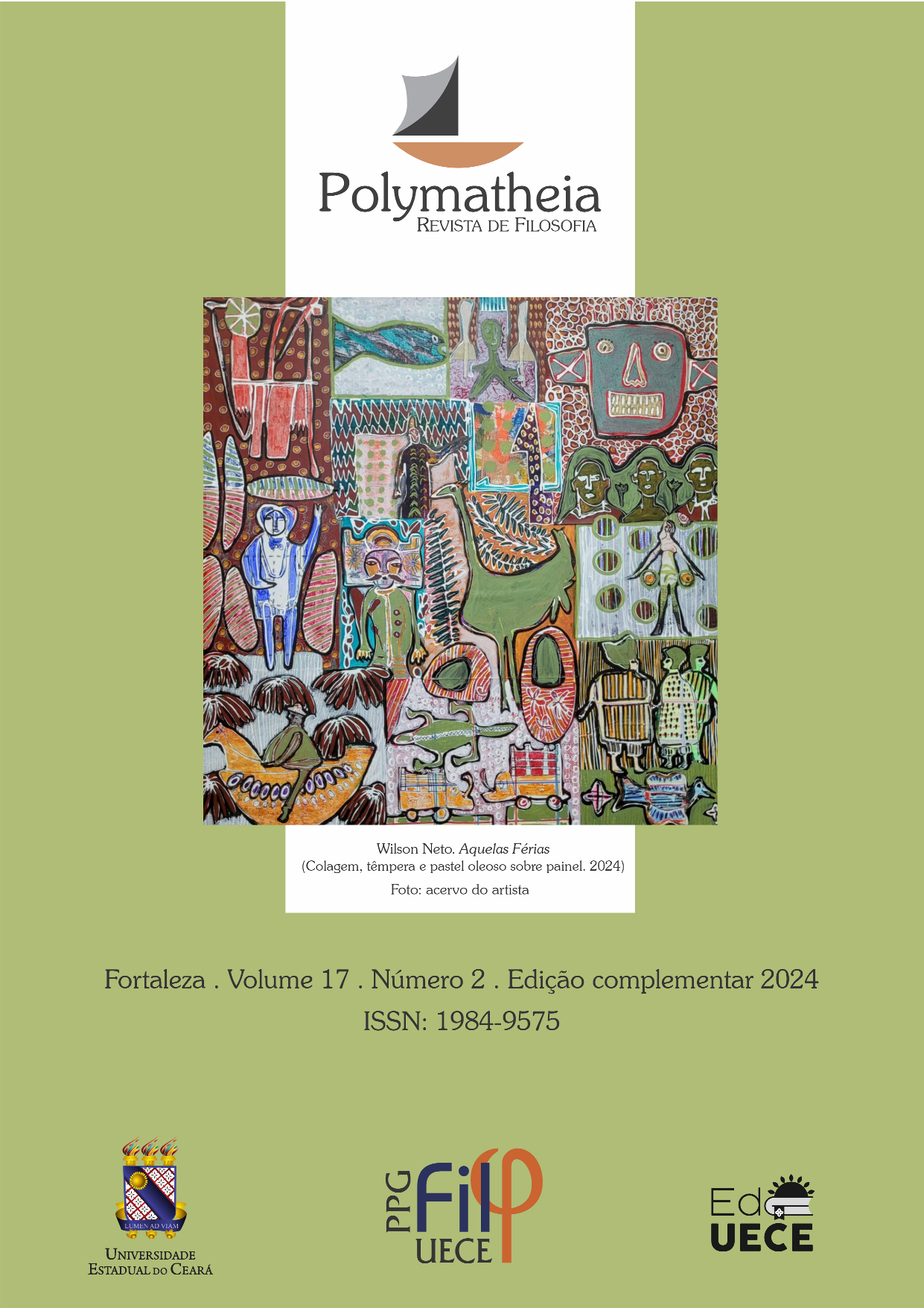A BANALIDADE DO MAL EM HANNAH ARENDT
COMPREENSÃO E ATUALIDADE DO CONCEITO
DOI:
https://doi.org/10.52521/poly.v17i2.13024Palavras-chave:
Radicalismos, extermínio nazi, mal radical, mal banalResumo
O objetivo do artigo é analisar o conceito de banalidade do mal, em Hannah Arendt, na sua compreensão e atualidade. No entendimento de que aparece em oposição a um conceito de mal enraizado, analisamos os radicalismos antijudaicos e a perspectiva kantiana do mal radical, para compreender, em que medida, o nazismo pode ser um mal desta natureza. Radicalidade que Arendt questiona, por considerar que, embora extremo, aquele mal é sem profundidade; vivenciado como algo normal, pelo qual ninguém se questiona ou responsabiliza. Pode ocorrer, na atualidade, se não for denunciado, criticado, por indivíduos e instituições.
Downloads
Downloads
Publicado
Como Citar
Edição
Seção
Licença
Copyright (c) 2024 Maria Rosa Afonso

Este trabalho está licenciado sob uma licença Creative Commons Attribution 4.0 International License.











